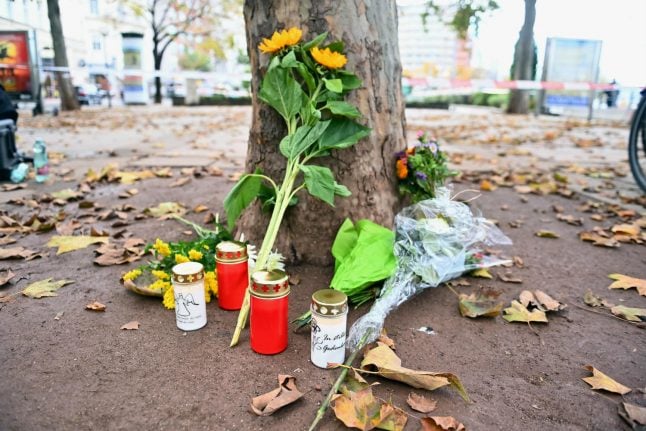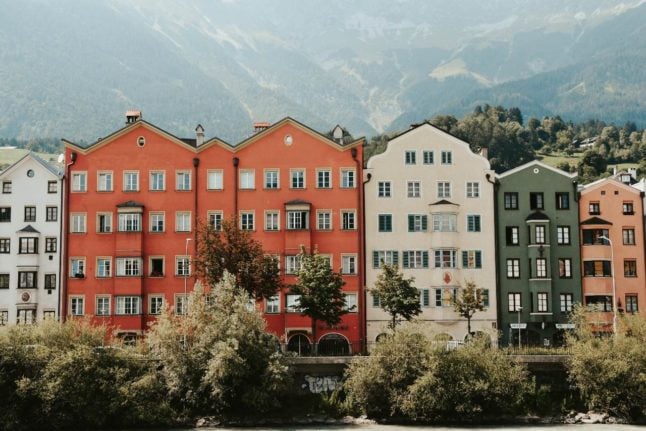On Tuesday Austria woke up to a new coronavirus shutdown after an eve of terror where at least four people were gunned down in Vienna’s historic city centre. Seven people are still in a critical condition.
What effect does the attack have on the nation situated in the heart of Europe?
The gunman was ‘firing at people like hell’
To many Austrians it was only a question of time over when Islamist terror would hit the country. The attack was orchestrated and it seems very likely that the killer or killers waited for the right moment to strike the nerve of the nation.
This moment was the last evening before the second shutdown, when all restaurants and bars were preparing to shut down for at least a month due to the coronavirus pandemic.
The first district, where the attack occurred at around 8pm yesterday, felt like a ghost town on Tuesday morning. People had been warned to remain vigilant and stay home – and those who can were glad to do so. Parents, who are deeply worried for their children, have also been allowed to keep them home from school.
I talked to the few people who were out in the streets near the “Bermuda Triangle”, a vibrant nightlife area close to the Jewish temple and the Danube Canal, where the shootings took place.
“I saw a guy in white clothes running around, firing at people like hell,” a young person who said he witnessed the scene from his window said.
READ ALSO: Austria police arrest 14 after Vienna rampage
Soon after the shots, which began near Schwedenplatz, disturbing footage was shared on social media channels. The police urgently asking witnesses to send their material to the Interior Ministry rather than sharing it online.
A law graduate working in a nearby office sent a warning message to his friend, he told me.
“Anybody outside should hide somewhere,” he had told his friend. “There were injured people lying outside our window. At least 30-40 gunshots.”
Many passers-by found refuge in some of the almost empty luxury hotels, where those living on the outskirts of the city were allowed to spend the night.
Others had been out enjoying a last performance at the Burgtheater before the lockdown – and ended up being barricaded until the early morning hours, unaware and anxious about what was going on outside, and what would happen next.

A police cordon in place near the shootings. Photo: AFP
Why is Austria victim of global terrorism?
With the identity of the gunned-down perpetrator being confirmed as a supporter of the terror group Isis, emotions are running high among Austrians.
There’s consensus that the attacks struck not only a nation that has been spared similar atrocities so far. But people also see the attacks as a threat to an open, free and peaceful Europe.
READ ALSO: Vienna attack carried out by Isis supporters who fooled authorities
Some wonder why Austria, a neutral nation, has now become a victim of global terrorism. They thought Vienna was not a strategic target even though it’s an international hub.
Many critics blame failed integration, religious intolerance and misguided asylum policies in the EU.
I’ve talked to people who also mentioned reported incidents that have taken place at churches in Vienna only a couple of days ago.
They see a close connection to recent attacks in France. Sensitive religious spots – churches, synagogues and schools – are exposed to high risk.
A friend living in an area with many Jewish shops and a Jewish school is scared of leaving her house at the moment. Like many others she believes the atrocity was religiously motivated.
In general there seems to be confidence in the police who are doing a good job in the tense situation.
Some Austrians, however, believe that over the past few months the police have cared more about controlling home quarantines and fining people for not wearing face masks rather than doing their ‘real job’, preventing crime and terrorism in the country.
How is it possible, they wonder, that terrorists with criminal records could arm themselves and reach the city centre totally unnoticed? This remains a troubling question indeed amid the uncertainty.
A new dystopian reality
For many Austrians the nation is currently going through its worst-case-scenario.
On the one hand there is increasing fear, insecurity and an aggressive atmosphere because of the coronavirus pandemic, restrictions and shutdown measures.
And the shock and trauma of yesterday’s terrorist attacks, plus the anxiety that before Christmas similar atrocities could take place both in Austria and all over Europe, is still sinking in.
 Investigators collect evidence near Schwedenplatz in Vienna on Tuesday. Photo: AFP
Investigators collect evidence near Schwedenplatz in Vienna on Tuesday. Photo: AFP
It seems evident that in 2020 Austrians find themselves in a new, much more dystopian reality than they did in 2019.
The “War on Terror”, which some politicians proclaim, affects a nation thought to be safe and secure. It must be said that Austria is still among the countries with the lowest crime rate and highest life quality.
These attacks seem likely to strengthen conservative and right-wing parties, who have been criticising poor integration, especially in Vienna, as well as in neighbouring Germany.
Eventually the gap in the Austrian society will widen, which could as well pose a threat to the government coalition as well as social stability and solidarity in the country.



 Please whitelist us to continue reading.
Please whitelist us to continue reading.
Member comments